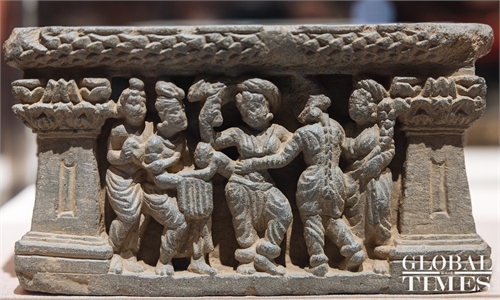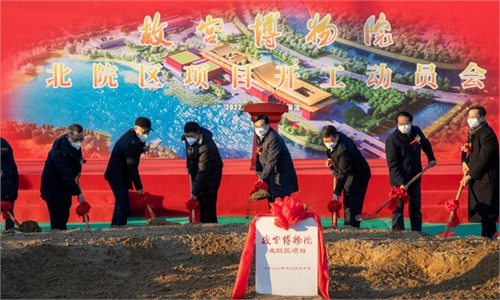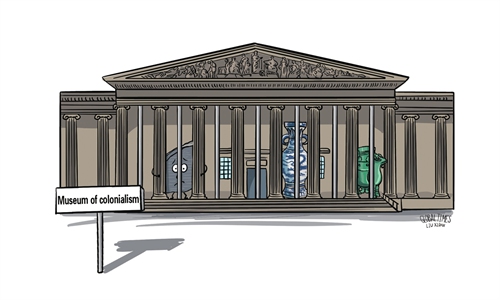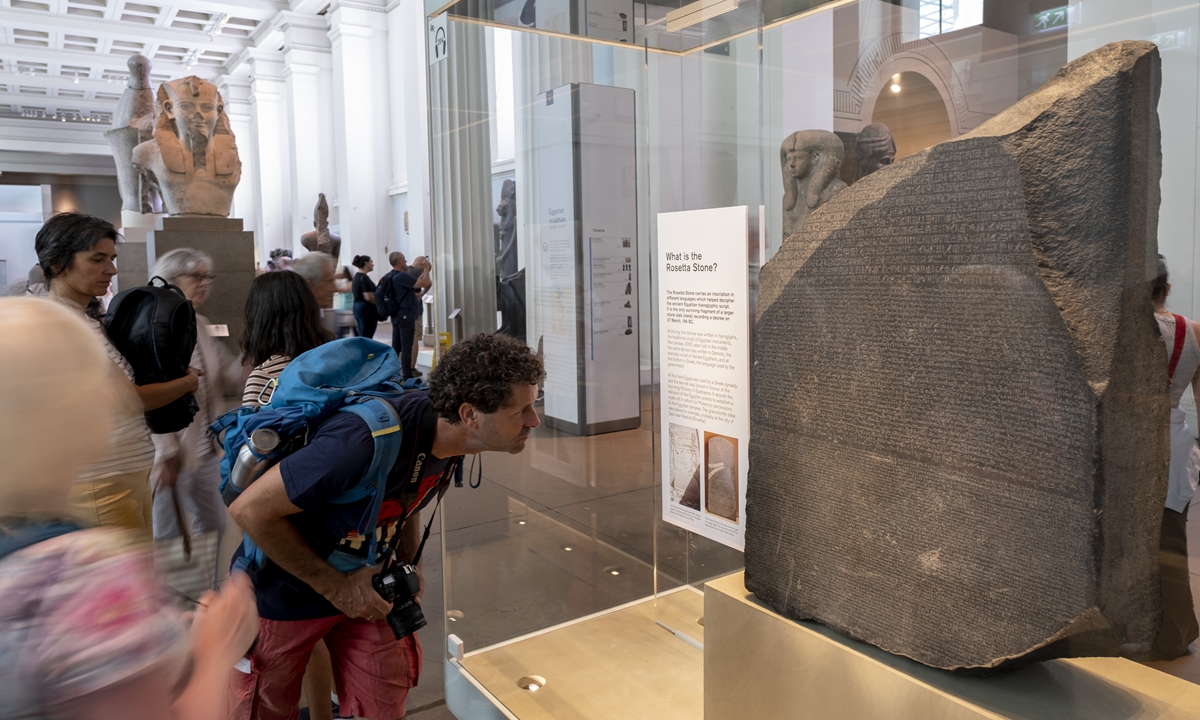
A visitor examines the Egyptian Rosetta Stone at the British Museum in London. Photo: VCG
While the opening of Egypt's landmark Grand Egyptian Museum (GEM) just around the corner, one of the country's most famous treasures, the Rosetta Stone, is still being held by the British Museum. Zahi Hawass, former minister of state for Egypt's antiquities affairs, has complex feelings concerning this sad state of affairs.
To urge the British Museum to return the Rosetta Stone, Hawass launched a petition on change.org, the world's largest petition platform, in October 2022. His petition is only one example of efforts by people in various countries - like China and Greece - once ransacked by Western powers to repatriate looted cultural relics.
Painful scar
The Rosetta Stone, an over 2,000-year-old granodiorite stele, was undeniably a part of the land of Egypt, but was taken by the French army in 1799 and later fell into the hands of the British.
The Egyptian hieroglyphics inscribed on the face of the stele is proof of its cultural identity. The stele holds a high position in the study of the country's history as it was the first key to unlocking the mystery of Egyptian hieroglyphics.
The Rosetta petition has now been signed by over 143,000 people online, far surpassing the threshold of 100,000 signatures Hawass set for sending an "official request" to the British Museum for the relic's return.
Although Hawass has not yet revealed his next move, the public has shown overwhelming support for him and his ambitions, lifting the petition to become one of the platform's "top signed" in just four months.
Such an outpour of support reveals the international community's thoughts on the British Museum. Hawass told the Global Times that rallying public condemnation was one of his intentions to put pressure on the museum.
Also seeking to bring back another Egyptian relic, the Dendera Zodiac sculpture now at the Louvre, Hawass told the Global Times that part of his fight with Western museums over these "illegally looted" treasures is to push them to correct colonial wrongs.
Egypt is not the only country that suffered cultural plunder by Western invaders.
China, with a large amount of cultural relics lost overseas, shares this pain as well. Over in Africa, Nigeria has also made it clear that their colonial trauma is a scar that will never fade even after Germany returned over 20 Benin Bronzes to them in 2022.
"A thief who returns stolen goods should not be praised, but made to face the consequences of his crime," said Olympus Ejue, a senior lecturer at Nigeria's University of Abuja.
Even when Western countries make attempts at "emotional compensation," their intention is to lay "the foundation for future expansion in Asia, Africa and Latin America and to improve their image," Tian Wenlin, a professor at Renmin University of China, told the Global Times. 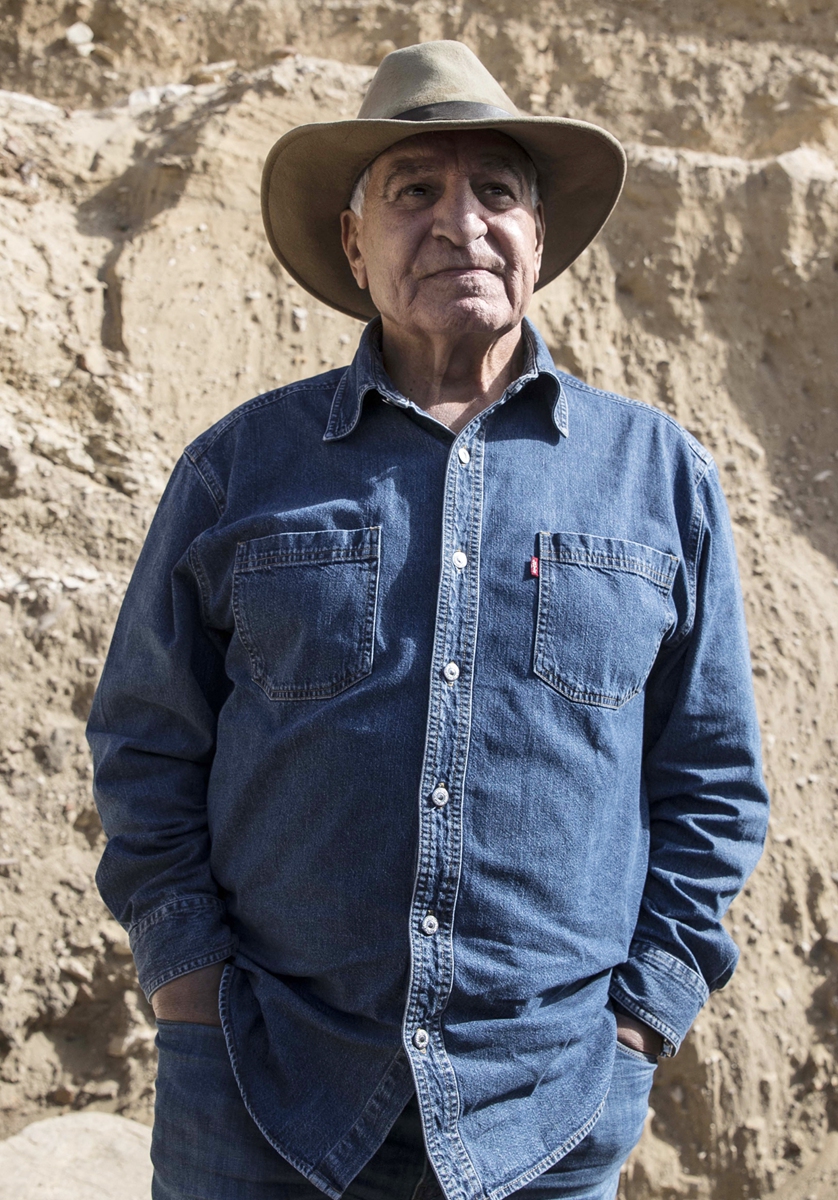
Zahi Hawass Photo: VCG
Hawass told the Global Times that although more than 6,000 treasures have been returned to Egypt since 2005, the country can never let go of the stele as it is an indelible part of their "Egyptian identity."
"Possessing such relics causes emotional harm to the country that was looted. It is a constant reminder of a humiliating history. This is why countries that are being bullied need to fight together to let Western museums know that the times have changed," Li Molun, an expert in relic repatriation, told the Global Time.
New light of hope
With its fast development and increased international discourse power, China is one of the countries once "bullied" but now taking action against Western cultural hegemony.
Overseas relic-tracking expert Fan Aijun told the Global Times that China's main approach to overcoming challenges to bringing relics home, such as "the insufficient biding force of international convention," is to seek out international collaboration.
One of the most important paths for this collaboration has been the Belt and Road Initiative (BRI), through which China has not only embraced countries such as Egypt, but also started new chapters with European countries such as Italy and France to retrieve lost cultural treasures.
The country's efforts have paid off.
In 2007, Italy once rejected China's request to return looted relics, but after becoming a BRI participant in 2019, the country finally returned 796 Chinese relics.
Fan told the Global Times that this can be seen as a "courtesy" on behalf of Italy to enhance their cultural bonds with China.
A similar milestone was made in 2022, when more than 1,800 lost Chinese treasures returned home. Seeing these success stories, countries like the Rosetta Stone's home nation are seeing China's relic-tracking efforts as a new light of hope.
"Not just Egypt and China - we should do an international meeting with India, Syria, Palestine, Greece, Peru," Hawass told the Global Times.
Li told the Global Times that it is time to "reshuffle the cards of cultural justice." He also emphasized the need to pass on the ambition to recover lost relics to the next generation.
In 2021, a new research team with talents in fields such as archaeology, international relations and museology was established at the Center for the Study of Lost Overseas Cultural Relics at Shanghai University to become a new incubator for educating young Chinese relic experts.
Also, a growing number of international educational programs have been launched in schools such as the University of Glasgow to denounce their home country's wrong conduct, and let younger Western scholars never forget history.
